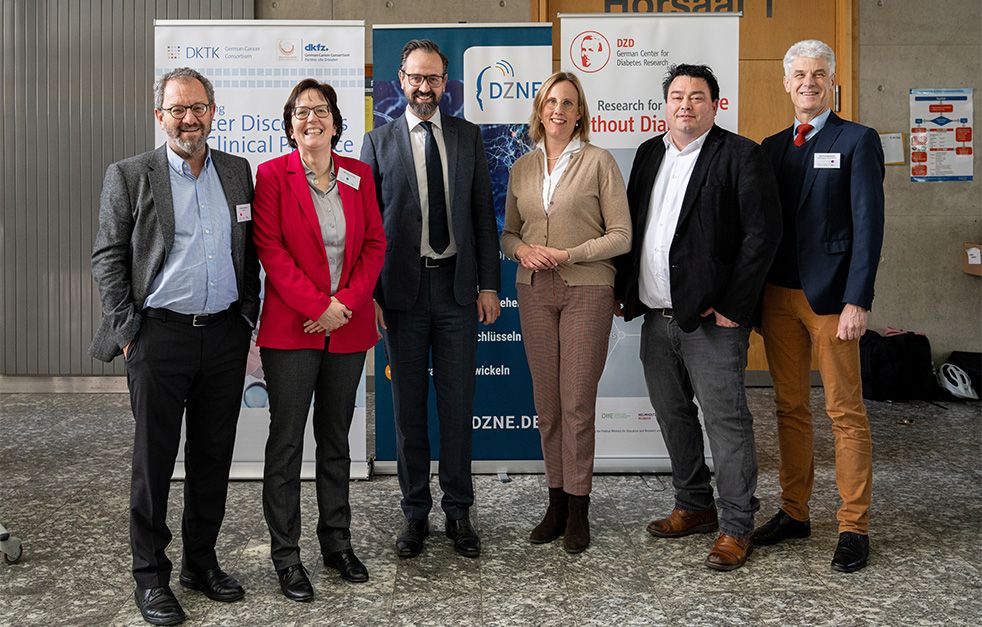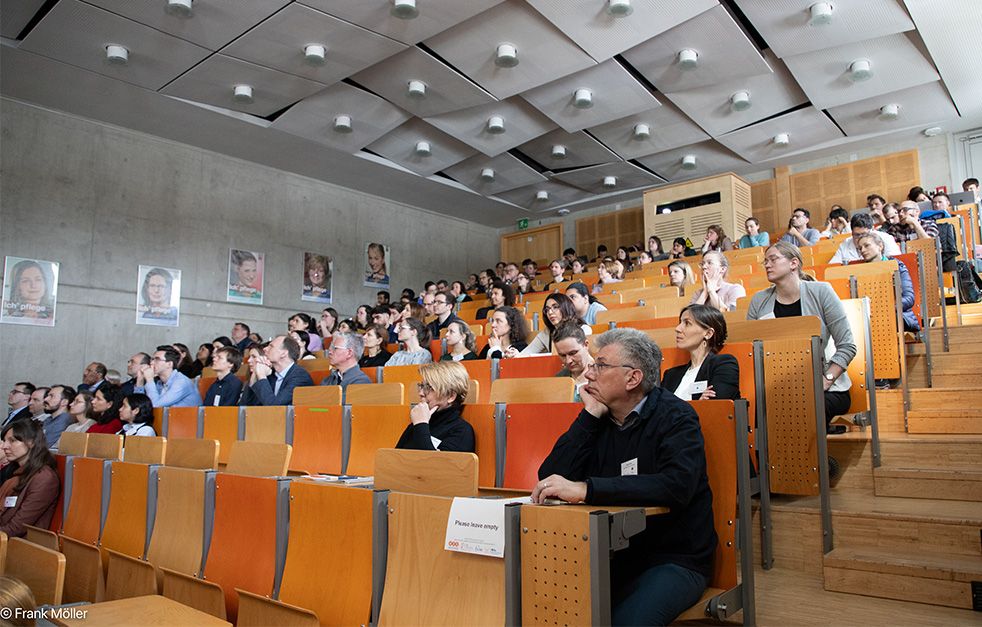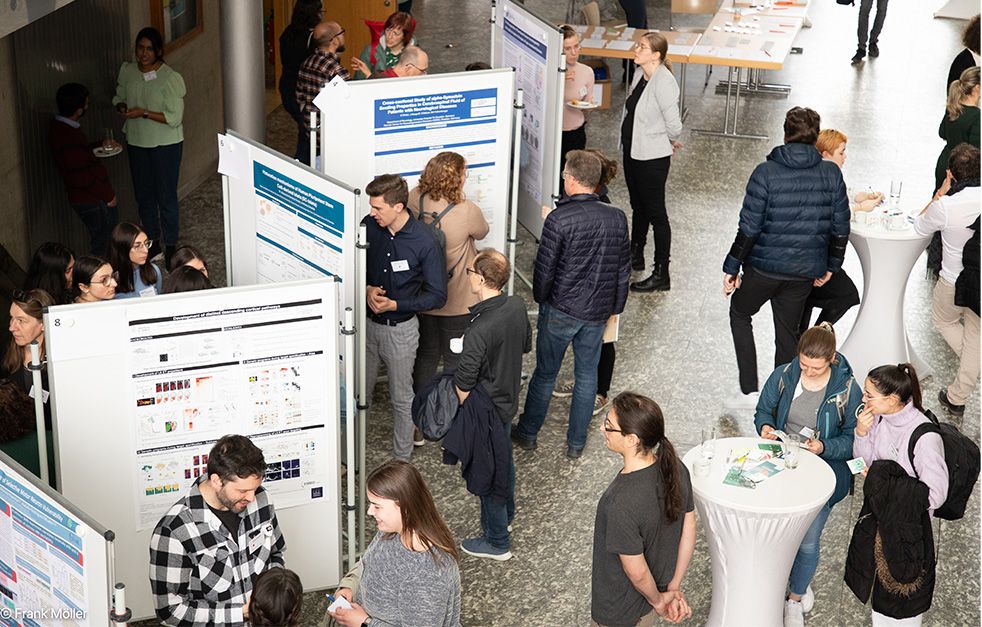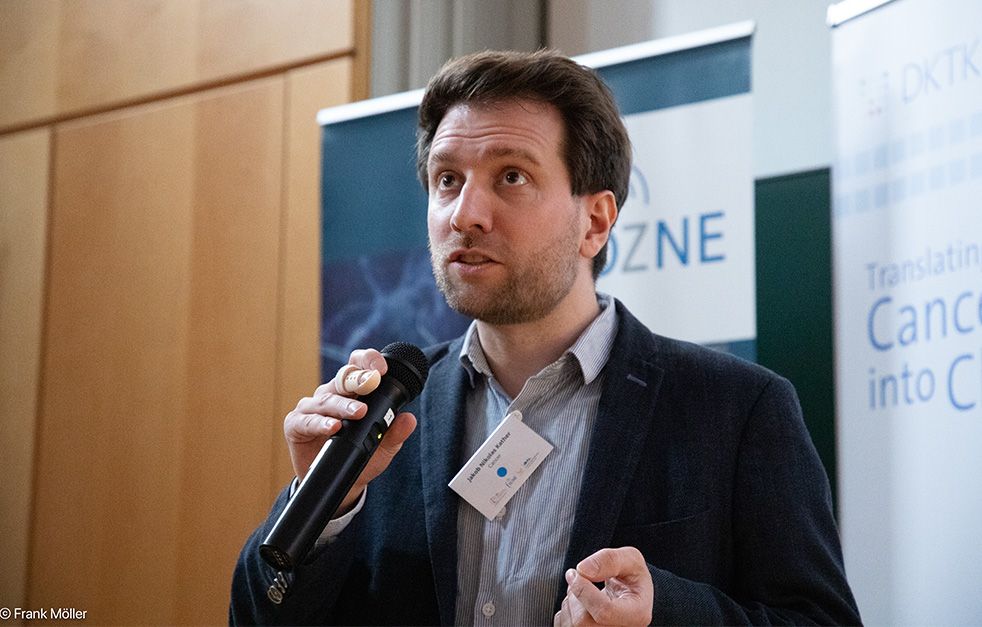05/04/2024
Print PageCancer, Diabetes, & Neurodegenerative Diseases – The 6th Joint Dresden DZG Symposium brings together a variety of Dresden researchers once again.

Despite their different research areas, the three centers have much in common when it comes to developing new therapeutic approaches or research methods. The long-term networking that has now existed for many years at the Dresden site offers outstanding opportunities to jointly develop new innovative research strategies.
Once a year, the three centers organize the Joint Dresden DZG Symposium, which took place for the sixth time on March 26, 2024, and was mainly hosted by the DKTK this time. The symposium, designed as a platform for exchange among Dresden scientists and physicians, took place at the MTZ with over 100 participants.
The importance of the DZG for Saxony was underlined by the presence of Sebastian Gemkow, Saxon State Minister for Science, who gave a welcoming speech in addition to Esther Troost, Dean of the Faculty of Medicine at TU Dresden and Mechthild Krause, spokesperson for the DKTK partner site Dresden.
Subsequently, the three local spokespersons of the DZG – besides Mechthild Krause, Michele Solimena (DZD/PLID) and Gerd Kempermann (DZNE) – presented their institutions and current research highlights. Gerd Kempermann then took the opportunity, on behalf of all present, to thank our longtime ministerial supporter, Annerose Beck, for her unwavering and tireless commitment to the Dresden DZG.

In his presentation on the national activities of the German Centers for Health Research, Triantafyllos Chavakis spoke about a groundbreaking immunological project, which has been funded by the DZG Innovation Fund (DZGIF), in which researchers from the various DZG have been able to apply for research funding for a joint project on a specific topic since 2022.
We have already implemented this concept of DZG-overarching research support locally since 2020 with a popular and successful seed funding for cross-DZG projects, which are intended to promote new translational activities between the DZG in Dresden. At this year's symposium, the awardees of the last funding round (Franziska Baehnke/Annette Garne/Mike Karl and Rebecca Rothe/Anne Eugster, more information here) had the opportunity to present the progress of their projects to the audience.

This year also included again the one-minute poster flash talks. 19 young scientists took the opportunity to present their projects briefly and concisely. Afterwards, the conference participants had the opportunity to engage in discussions with the young researchers at their respective posters.
The keynote presentation was given by Jakob N. Kather (EKFZ Dresden). With his lecture on "AI in Medicine", he provided a fascinating insight into the possible applications and still existing limitations of artificial intelligence in medical diagnostics and therapy.

Finally, Gerd Kempermann had the pleasure and honor of opening the next call for DZG-overarching project proposals and inviting everyone to the 7th Joint Dresden DZG Symposium at the DZNE in 2025.